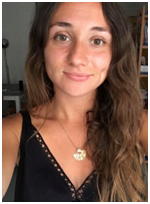Summary :
Introduction. Despite the current expansion of new assistive technologies, the healthcare professionals’ lack of training in this field is an obstacle to the effective use of these technologies.
Situation and context. Occupational therapists, clinicians and researchers in robotics and embedded systems are collaborating within the ADAPT European research project for the development of a new assistive technologies training. This training’s last module, which is the focus of this paper, particularly tackles the ADAPT technologies : a smart and connected electric wheelchair that compensates for users’ mobility difficulties thanks to assistive technologies, and a virtual reality wheelchair driving simulator. The needs which were identified through a literature review and a survey conducted with healthcare professionals helped define our training framework.
Intervention. Five e-learning units about assistive technologies lead to the final module dedicated to the ADAPT new technologies. The multidisciplinary development related to the design of this project’s new technologies led to a completely hybrid final module, composed of theoretical web-meetings and a day of practical demonstrations.
Analysis and discussion. This training course, which is currently being developed, contributes to fill the gap expressed by healthcare professionals in the field of assistive technologies. Trained professionals suggest that new technologies that are in use offer more possibilities for users to increase their autonomy and independence.
Conclusion. This project opens up new perspectives for occupational therapists, whether in terms of training, use of new tools, or widening of the possibilities for prescribing electric powered wheelchairs.
Cet article est payant !
Je suis abonné, je m’identifie ci-dessous.
Je ne suis pas abonné, j’achète ici
Article rédigé par :
-

Lucie Ménard
Ergothérapeute DE
CHU Rouen, ERFPS – IFE
14, rue du Professeur-Stewart
76000 Rouen
lucie.menard@chu-rouen.fr
-
Sophie Achille-Fauveau
Ergothérapeute DE
Réseau Breizh PC Handicap
35000 Rennes
sophie.achille-fauveau@pole-sthelier.com
-
Marie Babel
Maître de conférences
Institut national des sciences appliquées de Rennes-CNRS
Inria, Irisa-UMR6074
35000 Rennes
marie.babel@irisa.fr
-
Redouane Khemmar
Enseignant-chercheur, Normandie Univ
UNIROUEN, ESIGELEC, IRSEEM
76000 Rouen
redouane.khemmar@esigelec.fr
-
Louis Lecrosnier
Enseignant-chercheur, Normandie Univ
UNIROUEN, ESIGELEC, IRSEEM
76000 Rouen
louis.lecrosnier@esigelec.fr
-
Fabio Morbidi
Enseignant-chercheur, Laboratoire MIS
Université de Picardie Jules-Verne
80000 Amiens
fabio.morbidi@u-picardie.fr
-
Déborah Laval-Quesney
Ergothérapeute cadre de santé, formatrice
CHU Rouen, ERFPS – IFE
14 rue du professeur Stewart
76000 Rouen
deborah.laval-quesney@chu-rouen.fr
-
Philippe Gallien
Médecin MPR, Pôle MPR Saint-Hélier
54, rue Saint-Hélier
35000 Rennes
philippe.gallien@pole-sthelier.com
-
Emilie Leblong
Médecin MPR, Pôle MPR St Hélier
Doctorante en sciences, INSA Rennes
54, rue Saint-Hélier
35000 Rennes
emilie.leblong@pole-sthelier.com

